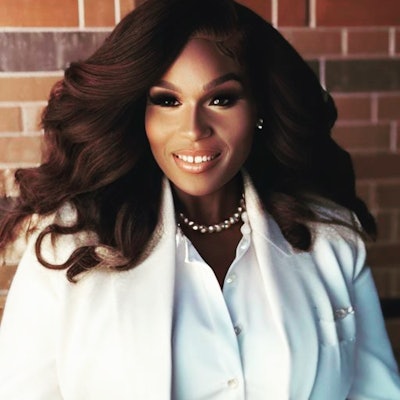The recent arrival of National Black Voter Day is a matter of utmost significance given the storied history of Black voter suppression in this country.
For readers who may not be well-versed in the underlying rationale behind this particular day, it is important to highlight the efforts of organizations such as the National Urban League, who strategically leverage the second Friday of September to orchestrate educational initiatives aimed at empowering Black voters with knowledge and strategies to actively engage in civic matters. In light of the significance of the aforementioned programming, we, university-based academics, whose expertise converges at the crossroads of higher education, civic participation, and the advancement of Black student achievement offer a more nuanced perspective of Black voters. Specifically, our focus is on a marginalized cohort of Black voters within the discourse on Black civic participation- the vital yet often overlooked modern Black youth voters. Dr. Amanda Wilkerson
Dr. Amanda Wilkerson
There is an extensive body of scholarship dedicated to the multifaceted realm of political socialization, which fundamentally pertains to the formation of codified beliefs and principled values pertaining to active civic participation. Yet, it is disconcerting to observe the dearth of knowledge surrounding who non-white voters are, particularly Black youth voters. Furthermore, it is imperative to acknowledge the profound impact exerted by political socialization agents, including familial and peer influences. In our pursuit to propel the discourse forward, we aim to elucidate the intricate dynamics surrounding Historically Black Colleges and Universities (HBCUs) and the symbiotic relationship between the aims of the Black National Voter Day project programming. That is, this exploration serves to underscore the imperative of contemplating the significance of Black National Voter Day within the context of HBCUs students.
In 2020, our esteemed colleagues embarked upon a transformative intellectual odyssey, driven by an unwavering commitment to unravel the intricate tapestry of factors that shape the ideological formation of Black youth voters; and how over time that formation leads to actively participating civically. Upon conducting an analysis of collected data pertaining to the demographic attributes of Black youth voters, a noteworthy finding emerged, suggesting a correlation between college education and the likelihood of voting among voters aged 18 to 29. Considering the notable achievements of individuals such as Vice President Kamala Harris, Stacey Abrams, and Andrew Gillum, who have emerged as prominent national figures, we directed our focus towards the political socialization experiences of Black youth who, like the aforementioned, have been educated at HBCUs.
Historically, HBCUs have played an important role in creating and maintaining a culture of civic involvement on their campuses. HBCUs allowed students both then and now to establish an atmosphere favorable to informed civic development. It therefore is critical to look into the tremendous influence of HBCUs in fostering students who develop a strong sense of civic participation in a thought-provoking manner. The involvement of educated Black youth voters from HBCUs brings forth a wealth of real-life experiences as it relates to participatory civic engagement. Students possess valuable insights into political engagement and a keen awareness of the utilization of social media vis-à-via political messages. In short, HBCUs provide fair access to political processes, which aligns with the goals of National Black Voter Day.
Even as Black National Voter Day has come and gone, it is vital to contemplate the diverse array of young Black voters educated at HBCUs who have undertaken the endeavor of formulating a framework to exercise their democratic rights. Consider that the experiences of voters, Black voters, and college age voters are not the same. As such programming for such a day should ardently advocate for the preservation and expansion of suffrage rights in a manner that speaks to the experiences of said voters.
In short, National Black Voters Day serves as a crucial platform for HBCUs to pay tribute to the influential Black voters of the past, while simultaneously organizing initiatives that empower and equip young Black voters with the necessary democratic resources to shape a fairer and more just tomorrow. As a result, it is clear that HBCUs serve as the natural partner for Black youth voters in their pursuit to shatter voting barriers, empower Black voters, and pave the way for true social justice through the power of the ballot.
Dr. Amanda Wilkerson is an assistant professor at the University of Central Florida.
Dr. Shalander "Shelly" Samuels is an assistant professor at Kean University.
Dr. Allison Clark is the founder of Black & Blu Research, LLC.


















